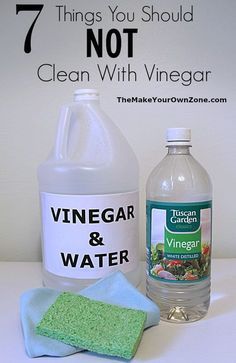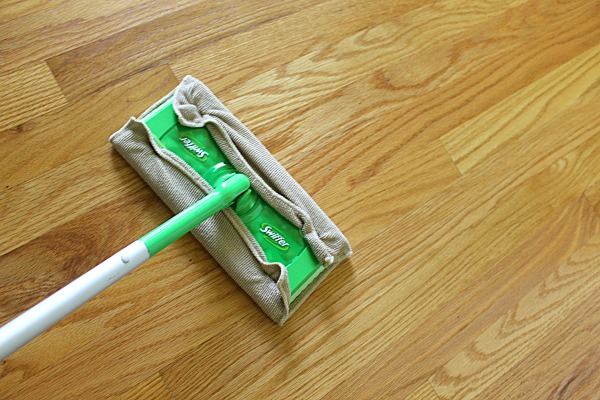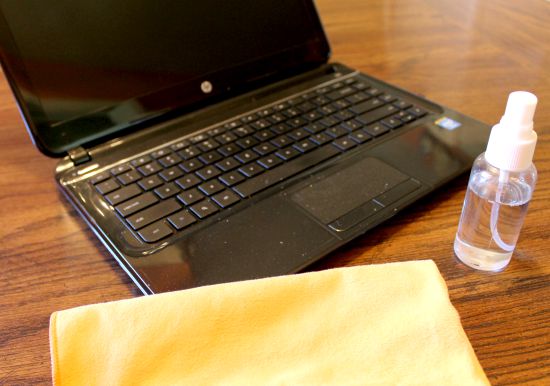
1. Granite or Marble.
Granite and marble are natural stones that are soft enough to be etched by vinegar’s acidity over time. Instead try a homemade cleaner that substitutes rubbing alcohol for the vinegar. To make your own granite cleaner combine 1¾ cups water, ¼ cup rubbing alcohol, and a small squirt of dish soap. Just plain old dish soap and water is a good choice too. And Quartz? I turned up some conflicting information on whether vinegar should be avoided on quartz but if you want to be better safe than sorry, use the rubbing alcohol mixture instead.
2. Hardwood Floors.
There’s also some conflicting information on cleaning hardwood floors with vinegar (and you can find plenty of hardwood floor cleaners on Pinterest that include vinegar). However I’ve decided to remain cautious and keep vinegar away from the original hardwood floors in my 1950’s era home that we’ve had restored and refinished. There are stories of vinegar dulling the finish and even warping the floors. I’ve always just used plain water (usually just a damp cloth on my swiffer) to clean my hardwood floors, however I’ll soon be testing a homemade floor cleaning idea I’ve found that uses some rubbing alcohol in the mixture, much like the solution for granite.

3. Phones and Computers.
Our electronic gadgets are expensive items and many of them have special coatings on their touch screens. Again, vinegar can be too acidic for these high-tech items. Once before I wrote about my homemade solution for cleaning my phone and laptop which is to simply spritz my homemade eyeglass cleaner onto a soft cloth and then gently clean the outsides and screens of my electronics. And here we start seeing a pattern as my homemade eyeglass cleaner is a mixture of rubbing alcohol and water with a very small squirt of dish soap. Apparently when vinegar is too acidic, it’s rubbing alcohol to the rescue!

4. Stone Floors.
This is the same caution as for granite or marble. It would seem like stone is a rough and tough surface, however stone floor tiles (or other stone surfaces) can be scratched by the acidity in vinegar over time. You can try the homemade granite cleaner suggested in #1 above.
5. Greasy Messes.
This is less of a caution and more of a reminder that an acidic cleaner like vinegar doesn’t do much at all to clean up greasy messes. Instead you’ll have much more success cleaning grease with an alkaline mixture like good old dish soap and water.
6. Spilled Egg.
If you accidentally drop that egg on the floor and have a mess to clean up, your handy-dandy vinegar and water will not be helpful. Vinegar just makes the egg coagulate and turn into a thickened gluey mass that will be even tougher to clean up. Instead just use soap and water – OR – I have used the little trick of sprinkling salt onto the spilled egg which the egg then absorbs, making it much easier to clean up.
7. Cars.
An acidic cleaner like vinegar is tough on waxed finishes, ultimately breaking them down and stripping them off. So if you like to wash your own car in the driveway, don’t dump any vinegar in your bucket of wash water. Just use a good squirt of soap instead.

So those are a few places where you’ll want to avoid vinegar in your household cleaning. Any time you feel vinegar may be too acidic, one of the best options is to just use the good old reliable mixture of soap and water which is still a low cost and resourceful solution.

Leave a Reply